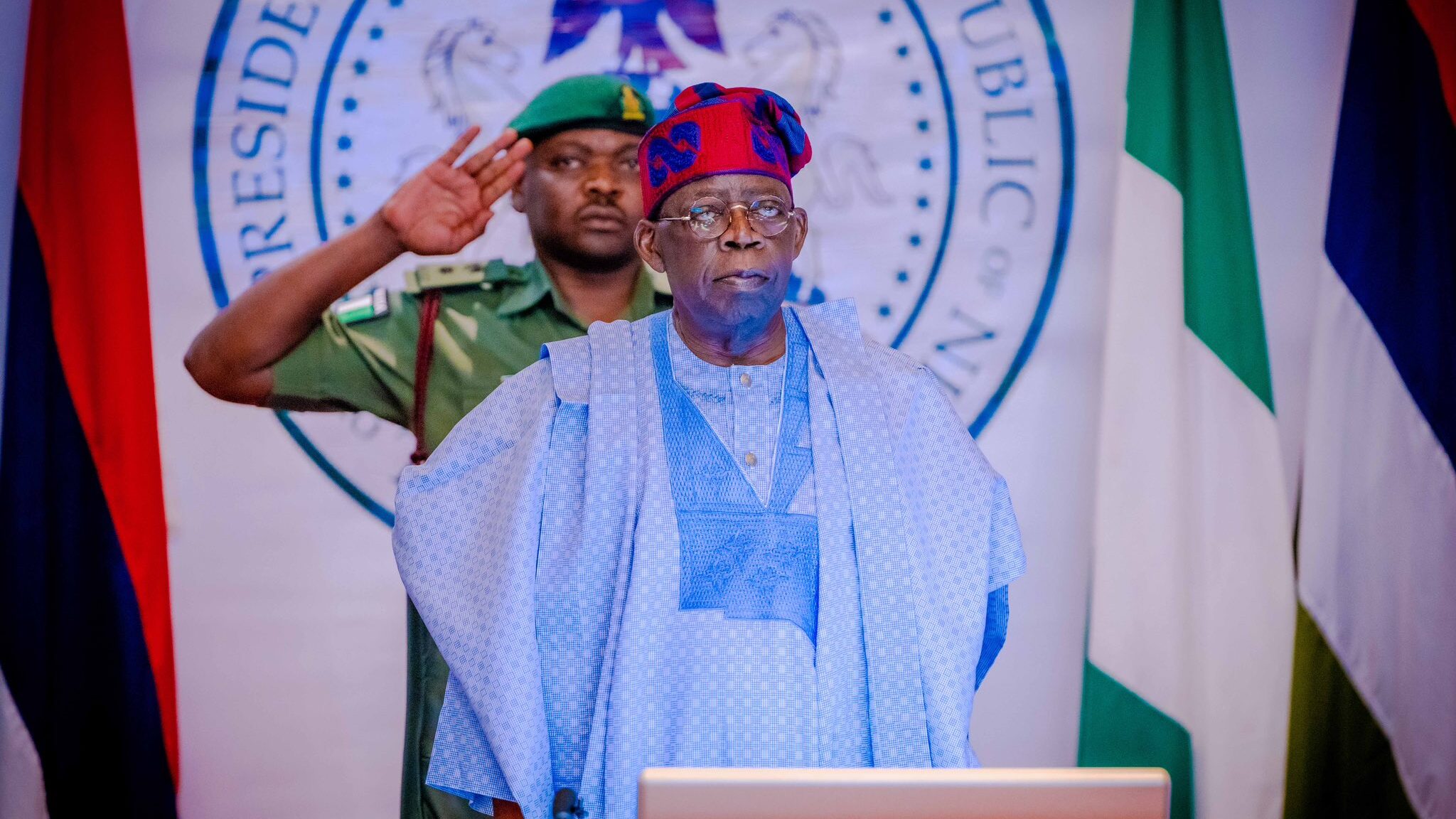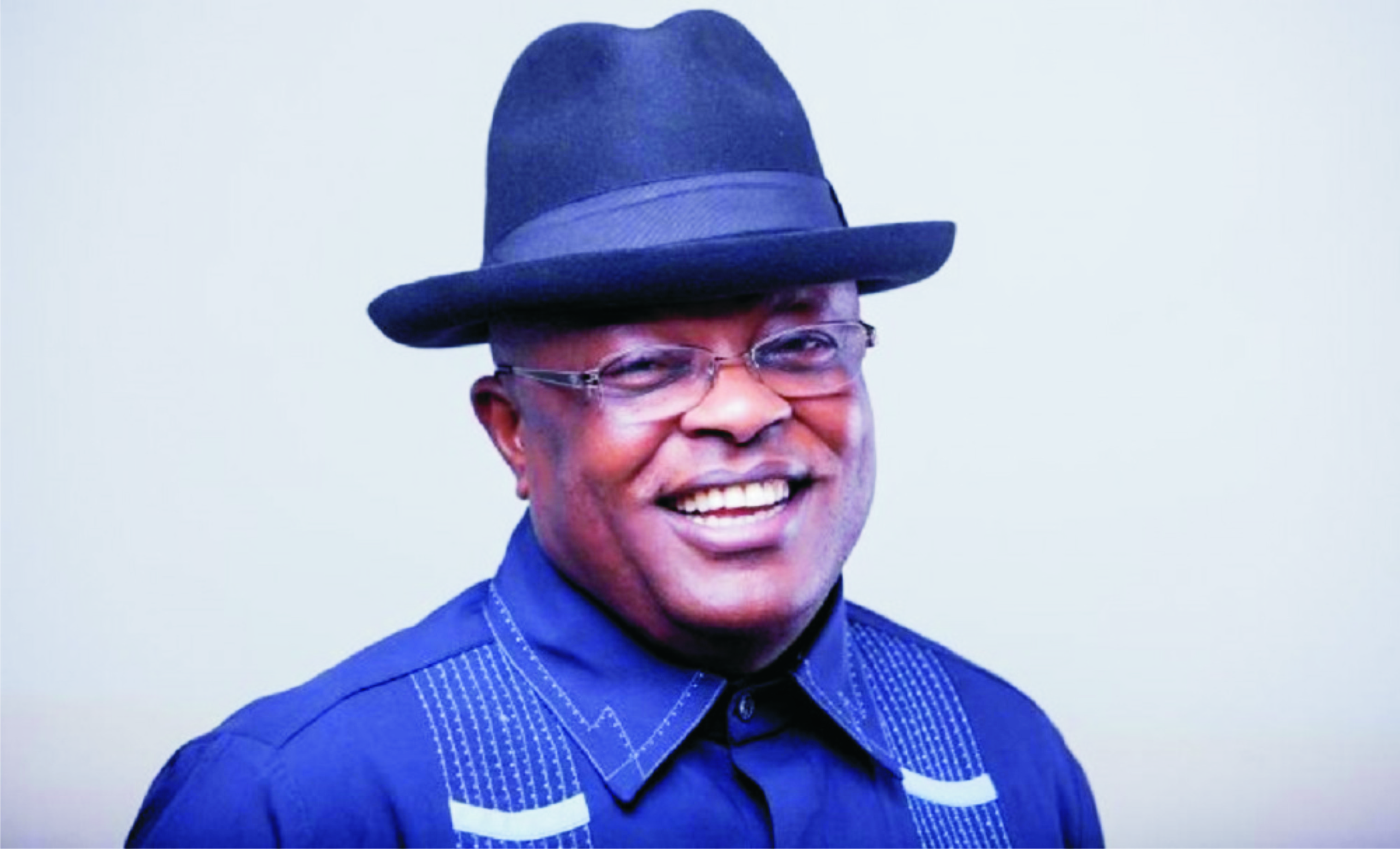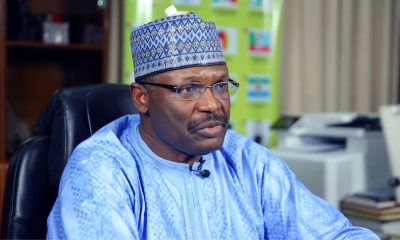News
NDLEA Trains Six W/African Countries On Dismantling Secret Labs
The National Drug Law Enforcement Agency, (NDLEA), has conducted a regional training for six West African countries on how to dismantle secret laboratories to strengthen regional action against drug cartels.
The Director, Media and Advocacy, NDLEA, Mr Femi Babafemi, said this in a statement on Thursday in Abuja.
He said the training, which took place in Abidjan, Côte D’Ivoire, from March 27 to 29, involved six other West African countries: Republic of Benin, Ghana, Sierra Leone, Liberia, the Gambia, Cote D’Ivoire and Nigeria.
Babafemi said the training was part of an ECOWAS project known as “Organised Crime: West African Response to Trafficking” (OCWART), co-funded by the European Union (EU) and German Federal Foreign Office.
He said the project was executed primarily by Deutsche Gesellschaft für Internationale Zusammenarbeit (GIZ) and United Nations Office on Drugs and Crime (UNODC).
He also said as the lead agency at the workshop, NDLEA drew from its experiential knowledge acquired from the dismantling of 21 secret laboratories found in Nigeria since 2011.
This he said was, however, used to teach other West African countries the practical know-how of handling illicit laboratories.
According to him, a total of eight topical lectures, practicals and question and answer sessions were delivered in two days by a team of NDLEA facilitators.
“They include: Joseph Nbona (Director, Prosecutions and Legal Services), Margaret Ogundipe (Director, Forensic and Chemical Monitoring); Adebowale Rahman (Digital Intelligence specialist), Anebi Ajilima (Forensic and crime lab expert) and Felix Tagbo (Operation specialist).
“The first two days of the workshop dwelt on various perspectives on the subject matter, including the anatomy of a clandestine laboratory, basic clandestine lab investigation techniques and intelligence gathering, operations safety.
“Also included were guidelines for dismantling clandestine laboratories, clean-up and decontamination of illicit labs and sites, basics of controlled delivery and prosecuting cases of clandestine laboratories,” he said.
Babafemi said the workshop was wrapped up on the third day with a practical exercise on the dismantling of a mock clandestine laboratory at the Abidjan Police Academy.
This he said was set up by the Nigerian contingent, and the participants, divided into teams, took turns to dismantle and decontaminate.
He added that the workshop’s seven participating countries sent in representatives from relevant organisations, including Ghana’s Narcotics Control Commission.
“Also included were Sierra Leone’ Serious Organised Crime and Counter Terrorism Coordination Directorate, Drug Law Enforcement Agency of the Gambia (DLEAG), Transnational Crime Unit of Liberia and the INTERPOL.
“The Republic of Benin was represented by the Organised Crime Fighting Unit (CELCO), Customs and Narcotics Office (OCERTID),
“The host, Côte D’Ivoire, had representatives from Narcotics Squad from Judicial Police (DPSD), Customs, National Gendarmerie, Transnational Crime Unit (TCU), Forensic Police Laboratory and Joint Airport Interdiction Task Force (JAITF),” he said.
Mr Suman Toure, Country Representative of the United Nations on Drugs and Crimes (UNODC) and its Senior Adviser, Law Enforcement, West and East Africa, described the latitude of the workshop thus: “It is both enforcement and judicial capacity building.
Toure said the project offered technical and equipment support, and facilitated discussion of joint operations among member countries.
“We need regional cooperation to disrupt the transnational criminal organisations’ network,” he said.
Toure said the South-South cooperation that existed among ECOWAS member states since 2014 had helped to disrupt transnational criminal activities over the years.
Similarly, the Minister of Interior and Security for Côte d’Ivoire, Gen. Vagondo Diomande, said the workshop would ensure that law enforcement agencies across the region were equipped with the modern knowledge and equipment to fight transnational organised crime.
Diomande was represented by Mr Kouma Ronsard, Secretary General of the Inter-ministerial Committee for the Fight against Drugs.
He underscored the need for cooperation among law enforcement agencies in West Africa, saying that there was need for cooperation, especially bilateral cooperation.
“The new law in Cote D’Ivoire gave it the power to cooperate with states in the fight against drug and human trafficking.
“We need cooperation to break this chain. Cote D’Ivoire has cooperation with Nigeria. No one country can say, ‘there is no drug in my country,’ the reality is, we haven’t seen them and or don’t know yet of the techniques of the criminals,” he said.
Also, Dr. Amado de Andrés, UNODC Regional Representative for West and Central Africa, in his speech before presenting certificates to the participants, said: “All countries in the West Africa region need to cooperate.”
He added that the other countries needed Nigeria more in the participation of conventions against organised crime.
He said the purpose of bringing all the countries together was to break the language barrier.
“In the next five years, we will have to work together, so that your combined expertise can be used to train other regions of the world.
“We are trying to foster South-South cooperation in a way to make it effective as to strengthen security and entrench stability in the region,” he told the participants.
News
Tinubu Orders Fresh Push To Crash Food Prices

President Bola Tinubu has ordered a Federal Executive Council committee to move swiftly on measures to further reduce food prices across the country.
The Minister of State for Agriculture and Food Security, Senator Aliyu Sabi Abdullahi, disclosed this in Abuja, on Wednesday.
According to him, the directive focuses on ensuring safe passage of farm produce across transport routes to cut logistics costs.
“The President has given a matching order with a Federal Executive Council committee already handling it on how we are going to promote safe passage of agricultural foods and commodities across our various routes in the country,” Abdullahi said at a capacity-building workshop for Senate correspondents.
0:0
Nigeria, Africa’s most populous nation, has faced worsening food insecurity since the removal of fuel subsidy, high transport costs, and insecurity on major highways disrupted the movement of goods.
Despite government interventions, food remains largely unaffordable for millions.
The minister said the plan is tied to Tinubu’s broader vision of food sovereignty—beyond availability to ensure affordability, accessibility, and nutrition on a sustainable basis.
To back this up, he revealed that government is set to roll out a Farmer Soil Health Scheme to boost productivity and a revamped cooperative reform initiative to mobilise resources and empower rural farmers.
“Mr. President has shown tremendous interest in the cooperative sector as a veritable tool for resource mobilisation, for economic activity generation, and to improve the livelihood of members,” Abdullahi added.
The event, with the theme, “Parliamentary Reporting: Issues, Challenges and Responsibilities,” also featured Senate Media Committee Chairman, Senator Yemi Adaramodu; ex-presidential aide, Senator Ita Solomon Enang; and NILDS DG, Prof. Abubakar Sulaiman.
News
Umahi Threatens Defaulting Contractors With EFCC Arrest

The Federal Government has warned contractors, including foreign firms, that any breach of regulations in road projects awarded to them may lead to arrest by the Economic and Financial Crimes Commission and the Independent Corrupt Practices and Other Related Offences Commission.
The Minister of Works, David Umahi, issued the warning during an inspection of the ongoing dualisation of the East-West Road (Section IIIA) from Eleme Junction to Onne Port Junction in Rivers State.
The section is being executed by Reynolds Construction Company (Nigeria) Limited.
Responding to questions from journalists, Umahi commended the quality of work on the project but expressed displeasure over the slow pace, stressing that the December completion deadline remains sacrosanct.
On the project, he said:“The quality of the work is excellent, but the pace of work is totally unacceptable. Let me make it very clear to the contractor that this project will neither be reviewed nor varied in price or claims.
“I’m sure we have issued over 10 warning letters to them. If they fail to comply with the completion deadline of December 15, we will not extend it.”
He added that the ministry had already put measures in place to enforce compliance
“The comptroller has negative certificates to issue, and I will recover the money from any of their other projects. All those letters are on record, and when the time comes, they will be invoked. Any contractor who refuses to abide by regulations will have the EFCC and ICPC to contend with,” he said.
Umahi further disclosed that the Federal Government had directed that road projects valued below N20bn would no longer be awarded to expatriate companies, in line with its “Nigeria First” policy aimed at strengthening indigenous capacity in the construction sector.
“This is part of the Nigeria First policy of the Federal Government. Henceforth, no expatriate firm will be awarded any project valued below N20bn. Such projects must go to indigenous companies, while expatriates focus on higher-value projects requiring more technical capacity,” he said.
The minister also noted that the Federal Ministry of Works had adopted a funding prioritisation framework to sustain road projects initially financed by the Nigerian National Petroleum Company Limited under the Road Infrastructure Development and Refurbishment Investment Tax Credit Scheme.
He stressed that President Bola Tinubu had directed that none of such projects should be abandoned, adding that priority would be given to critical economic corridors.
Umahi also decried the indiscriminate parking of heavy-duty vehicles on highways, saying it was damaging the pavements of completed sections of the road.
He said letters would be sent to state governors and the Inspector-General of Police to enforce punitive measures against defaulters.
Earlier, the Federal Controller of Works in Rivers State, Mrs Enwereama Tarilade, said RCC had completed 15km of the right carriageway and commenced work on the left carriageway, with one kilometre already laid in Continuously Reinforced Concrete Pavement.
News
We’ll Support Federal University Environment And Technology – Ibas

The Rivers State Government says it will ensure the smooth and successful takeoff of the newly established Federal University of Environment and Technology (FUET), in Ogoniland.
This commitment was made yesterday by the Administrator of Rivers State, Retired Admiral Ibok-Ete Ibas (Rtd), during a courtesy visit by the university’s Governing Council and Management team at the Government House, in Port Harcourt.
The high-level delegation was led by the Pro-Chancellor and Chairman of the Council, Professor Don Baridam and the Vice-Chancellor, Professor Chinedu Mmom.
In his address, Administrator Ibas warmly congratulated the pioneer council and management on their appointments, describing their task as both a recognition of individual accomplishment and a historic call to duty.
“This is not just a recognition of your personal achievements but also a call to history to shape an institution that will have a profound impact on Rivers State, the Niger Delta, and indeed our country,” he stated.
The Administrator commended President Bola Ahmed Tinubu for the establishment of the specialized university in Ogoniland, describing the initiative as “timely and strategic.”
He emphasized that the university’s presence offers a critical opportunity to drive research, innovation, and community-focused solutions to the region’s pressing environmental and developmental challenges.
He further noted that the university’s core focus aligns perfectly with the priorities of his administration.“We consider this university not merely as another institution of higher learning but as a strategic partner in our collective effort to rebuild Rivers State under the ongoing state of emergency and beyond,” he affirmed.
Responding to specific requests presented by the delegation, Administrator Ibas assured the university of immediate support in critical areas essential for the its commencement.
These include the provision of operational vehicles, key facilities, and the completion of the access road to the campus, adding that other vital needs, such as perimeter fencing, refuse disposal, and the issuance of a Certificate of Occupancy, would be addressed within the framework of the state’s broader infrastructure and support programmes.
To ensure swift action, the Administrator directed the Secretary to the State Government (SSG) to work closely with the university’s Governing Council to prioritize the sequence of requests, particularly those tied to the commencement of academic activities in September 2025.
“Let me assure you that Rivers State Government will stand as a dependable partner to the Federal University of Environment and Technology. We see this university as part of our long-term investment in knowledge, innovation, and the future of our youths,” he emphasized.
In his remarks, the Pro-Chancellor and Chairman of the Governing Council, Professor Don Baridam, reaffirmed the university’s commitment to academic excellence, innovation, and community development.
He disclosed that the Federal Government has directed the institution to formally commence its academic session in September 2025, adding that preparations are in full swing to ensure a smooth take-off with adequate infrastructure and resources in place.
“Today’s meeting marks the beginning of a strategic partnership between the Rivers State Government and FUET, envisioned to establish the university as a premier hub for research, innovation, and sustainable development in the Niger Delta”, he said.
-
Politics1 day ago
2027: Bayelsa APC Adopts Tinubu As Sole Candidate … As Lokpobiri, Lyon Shun Meeting
-
Sports1 day ago
GOtv Boxing Night 34 holds Dec. in Lagos
-

 Politics1 day ago
Politics1 day agoAlleged Smear Campaign Against Yakubu, CSOs Demand Apology From Uzodimma
-
Politics1 day ago
2027: Jega Condemns Premature Campaigns, Blames Elected Officials
-
Politics1 day ago
Why INEC Can’t Punish Politicians For Early Campaigns – Yakubu
-
Sports1 day ago
WCQ: NFF Denies Post Match Statement
-
Politics1 day ago
Stopping Natasha’s Resumption Threatens Nigeria’s Democracy – ADC
-
Sports1 day ago
Gov. Decries Delta’s Poor Performance At 2025 NYG

